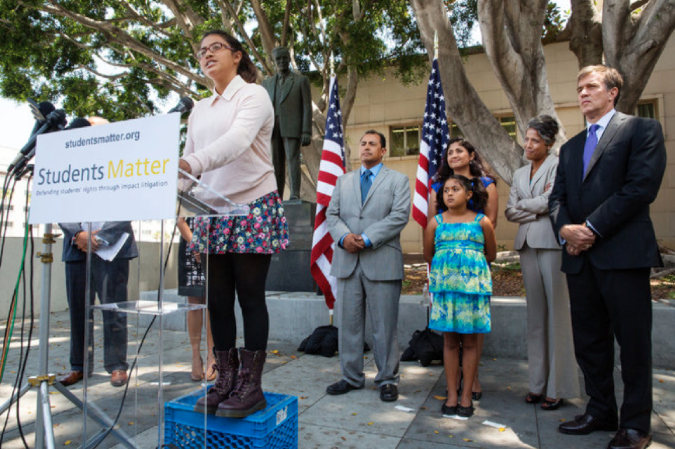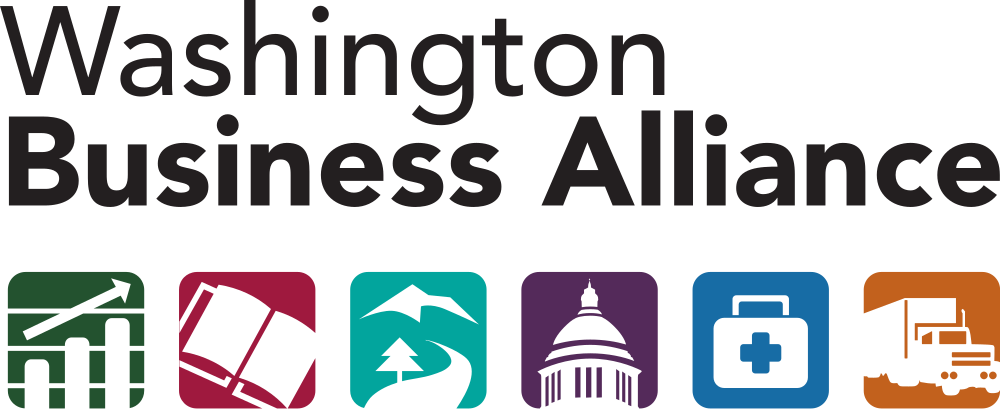In the Vergara vs. California ruling last week, a Los Angeles County Circuit Court judge sent a message to the nation about the rights of children to a good education in public schools. It’s not all about the Benjamins.
The San Jose Mercury News reported:
Silicon Valley entrepreneur Dave Welch and his nonprofit, Students Matter, “celebrated a victory when a Los Angeles judge ruled that California laws governing teacher tenure, firing and layoffs violate students’ constitutional right to education equality, and ordered the state to stop enforcing these laws.”
The Merc-News continued: “The ruling, which state teachers’ unions quickly denounced and vowed to appeal, decided a lawsuit brought two years ago by the nonprofit that Welch leads and helps fund with his own money….’I’ve been passionate about education for my whole life, and I’ve been involved in trying to improve education for my whole life,’ Welch said….’The first thing you have to do to deliver education to children in need is offer good, effective, and hopefully highly effective, teachers.’”

“Education Is More Than Money”
Here in Washington State where our Supreme Court has ruled in the McCleary case that slow-to-act lawmakers must provide billions more for K-12 education in coming years, the Tacoma News Tribune editorial board was among those paying close attention, in an editorial titled, “California Lesson: Education is More Than Money.”
“Our high court is rightfully demanding that lawmakers step up to their constitutional duty to ‘make ample provision for the education of all children residing within its borders’…(but)…’ample provision’ has to mean more than X dollars per student, Y number of instructional days, plus an adult with a teaching certificate standing in front of the class. In addition to money, ‘ample’ has to mean effective and accountable schools that turn the additional McCleary dollars into higher performance. If Washington students wind up getting nothing more for the extra billions the court has ordered, the ruling will be remembered as an abject failure.”
A good starting point for Washington state officials would be to beef up accountability policies linking student performance to teacher and principal evaluations. Failure to maintain that linkage led to federal sanctions here earlier this year.
But some don’t expect the Vergara ruling, even if upheld on appeal, to yield better K-12 public education for minority students.
William Koski of Stanford Law School tells the Stanford News Service:
“It is not at all clear that simply providing more administrative discretion over personnel decisions will be enough to improve student learning. First, the rules might not be the cause or even a substantial contributing factor to the teacher quality gap and the fact that there are underperforming teachers. Second, it is not clear that administrators in low-resource schools – or anyone, for that matter – will have the time, information and capacity to exercise any newfound discretion to improve student learning. And, third, the theory that we can fire our way out of this problem assumes that there exists a robust bullpen of would-be teachers who want to enter underperforming classrooms.”

The Role of Parents in Student Success
Writing in Forbes about Vergara, commentator James Marshall Crotty says the assertion of a too-easy path to teacher tenure is not the real issue: instead it’s the under-appreciated and key role of parents.
“The main determinant of educational success across all ethnic and income lines is the emphasis given to education in a child’s home and community. Though there are certainly some incompetent — or at least underperforming — teachers in America’s urban areas (as there are in any profession), the primary drivers of educational success are parents and guardians, who spend far more time with students than any teacher and thus model the study habits, vocabulary, reading, and educational expectations that students carry into the classroom.”
Crotty adds, “Thus, until this country adopts a tough love approach to academic lassitude in the home via carrot-and-stick policies with real bite – including No Pass, No Drive, and No Pass, No Welfare statutes — ending teacher tenure is just going to be more lipstick on the bloated pig that is American public education.”
Tougher accountability measures for teachers and principals, or parents – or both? How to attract more good teachers into the profession? What do you think?
